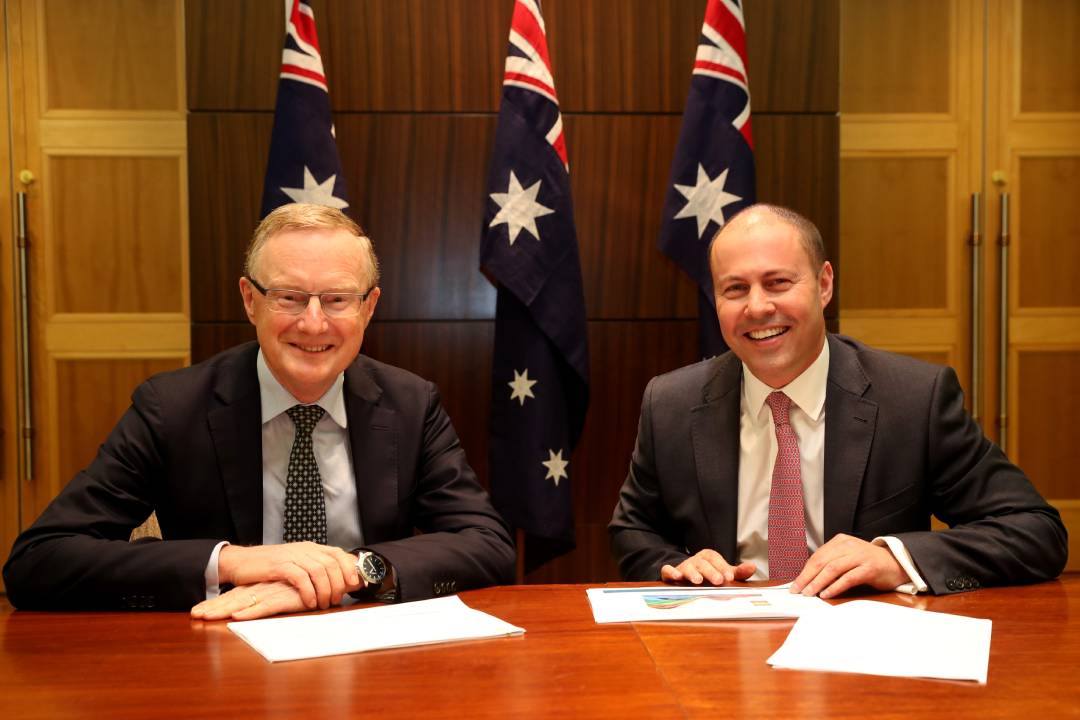

I hate it when I hear someone say: “I’m bored.” And especially so if it’s a kid you’ve spent a lot of money on to make sure they aren’t!
Three of the most boring subjects you could use to help an insomniac get some sleep is superannuation, actuarial services and the Reserve Bank. Of course, they’re all crucial to anyone thinking about getting rich via financial investing but their very stuffiness means normal people tend to ignore their importance.
Of course, people like me are used to building a bridge to carry normal people across to be aware of important but potentially dismissible events like the RBA board meeting today.
This is seen as such an important meeting that the SMH’s Jessica Irvine (a well-credentialed economist and commentator) has described today’s RBA shindig as a “historic rates meeting”. And she’s dead right.
There have been other historically notable rates meetings in my lifetime, like the one that signalled the raising of the cash rate had gone too far when home loan interest rates were 17% or even higher depending on who you borrowed from!
Then there was the one I’ll never forget in 2008 when the stock market had been falling since November 2007 but central banks had failed to be scared enough to cut interest rates. But the big failure problems of Lehman Brothers changed all that. This led to our central bank being the first in the world to cut rates. And as I’d been bagging the RBA for delaying cuts in The Australian (where I used to write) and on my Sky News Business program, it was an historic move that other central banks around the world followed.
(When I got the news I was in the Qantas club in Townsville after doing a speech where I’d told the audience that the RBA had to cut, and fast, so when the news came through it was a great relief.)
Along with Wayne Swan and Ken Henry’s decision to spend up big budget-wise, that rate cut helped Australia to be the only Western economy to dodge a recession during the GFC.
So what’s so historic about this one? Well, try these things for starters:
1. Bond buying is set to end and the RBA boss, Dr Phil Lowe is bound to talk about stopping the Bank’s buying of $4bn a week of bonds, that have been used to fund the budget-bankrolling of the rescue of the economy.
2. The historically low cash rate of interest, which is at 0.1%, won’t change today but Dr Phil could easily hint that a rise will happen this year.
3. The RBA’s take on the economy will be one of the most analysed and interpreted communiques of all time as economists, media types and market money-makers try to work out if Dr Phil will back away from his long-held view on when interest rates should rise.
Here, Dr Phil might have to eat humble pie about his 2024 interest rate rise promise.
As Jessica pointed out: “As recently as November last year, Lowe himself was clearly against 2022 hikes: ‘The latest data and forecasts do not warrant an increase in the cash rate in 2022. The economy and inflation would have to turn out very differently from our central scenario for the board to consider an increase in interest rates next year’”.
Right now the economy hasn’t changed enough to justify a rate rise. But by August, things could be different. The economics teams at Westpac, AMP Capital and CBA now believe the RBA will move on rates in August and then we’ll see at least a couple more by year’s end!
Dr Phil will either bat these away or concede that he believes things could change positively enough to justify a rate rise.
Inflation is rising and central banks usually raise rates to combat rising prices but as it’s now being driven by rising costs rather than excessive demand, the RBA might be slower out of the blocks to lift rates, which would add to costs.
Also, Dr Phil has always said he didn’t want to raise rates until wages were rising by 3% plus, and they’re not there yet. This could easily make him hold out longer than August, so the course of Omicron could be vital.
If Omicron dissipates as an economic problem by the end of March, then a boom of the economy could start and that will bring demand inflation. It could also help reduce cost inflation as fewer Omicron problems for businesses might take away supply chain cost increases but they still could take time to work themselves out of the inflation system.
All this makes the words that come out after this historic RBA meeting at 2:30 this afternoon far from boring! In fact, they could be historically memorable, which the stock market is bound to react to if they are.